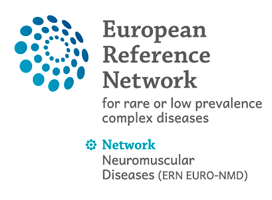Lancet Neurology, volume 17, issue 5, pages
Diagnosis and management of Duchenne muscular dystrophy, part 3: primary care, emergency management, psychosocial care, and transitions of care across the lifespan
Authors:
Prof David J Birnkrant, MDa dbirnkrant@metrohealth.org ∙ Prof Katharine Bushby, MDb ∙ Carla M Bann, PhDc ∙ Prof Susan D Apkon, MDd ∙ Angela Blackwell, MPHc ∙ Mary K Colvin, PhDe ∙ Prof Linda Cripe, MDf ∙ Adrienne R Herron, PhDg,h ∙ Annie Kennedy, BSi ∙ Kathi Kinnett, MSNi ∙ James Naprawa, MDj ∙ Garey Noritz, MDf ∙ James Poysky, PhDk ∙ Natalie Street, MSg ∙ Christina J Trout, MSNl ∙ David R Weber, MDm ∙ Leanne M Ward, MDn for the DMD Care Considerations Working Group†
aDepartment of Pediatrics, MetroHealth Medical Center, Case Western Reserve University, Cleveland, OH, USA
bJohn Walton Muscular Dystrophy Research Centre, Institute of Genetic Medicine, Newcastle University, Newcastle upon Tyne, UK
cRTI International, Research Triangle Park, NC, USA
dDepartment of Rehabilitation Medicine, Seattle Children’s Hospital, Seattle, WA, USA
eMassachusetts General Hospital and Harvard Medical School, Boston, MA, USA
fDepartment of Pediatrics, Nationwide Children’s Hospital, The Ohio State University, Columbus, OH, USA
gRare Disorders and Health Outcomes Team, National Center on Birth Defects and Developmental Disabilities, Centers for Disease Control and Prevention, Atlanta, GA, USA
hOak Ridge Institute for Science and Education, Oak Ridge, TN, USA
iParent Project Muscular Dystrophy, Hackensack, NJ, USA
jEmergency Department, University of California San Francisco Benioff Children’s Hospital, Oakland, CA, USA
kBaylor College of Medicine, Houston, TX, USA
lStead Family Department of Pediatrics, University of Iowa, Iowa City, IA, USA
mDivision of Endocrinology and Diabetes, Golisano Children’s Hospital, University of Rochester Medical Center, Rochester, NY, USA
nDivision of Endocrinology and Metabolism, Children’s Hospital of Eastern Ontario, and University of Ottawa, Ottawa, ON, Canada
† Members listed at the end of part 1 of this Review
Improvements in the function, quality of life, and longevity of patients with Duchenne muscular dystrophy (DMD) have been achieved through a multidisciplinary approach to management across a range of health-care specialties. In part 3 of this update of the DMD care considerations, we focus on primary care, emergency management, psychosocial care, and transitions of care across the lifespan. Many primary care and emergency medicine clinicians are inexperienced at managing the complications of DMD. We provide a guide to the acute and chronic medical conditions that these first-line providers are likely to encounter. With prolonged survival, individuals with DMD face a unique set of challenges related to psychosocial issues and transitions of care. We discuss assessments and interventions that are designed to improve mental health and independence, functionality, and quality of life in critical domains of living, including health care, education, employment, interpersonal relationships, and intimacy.

